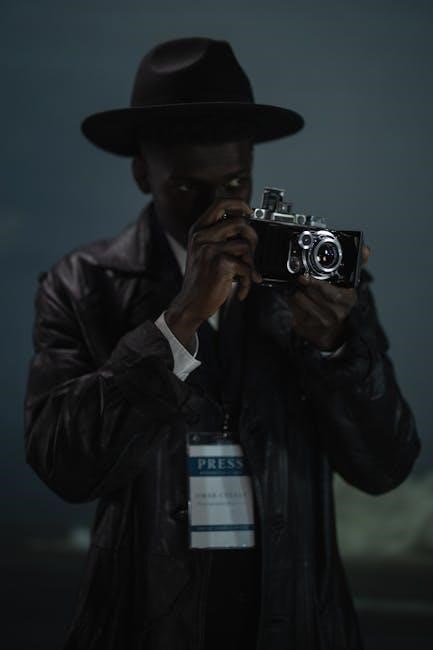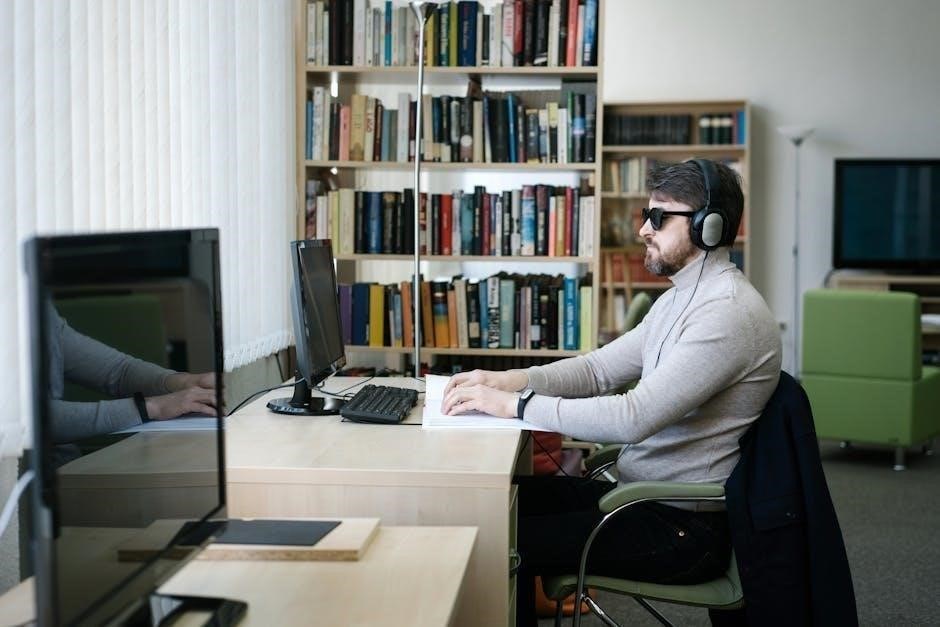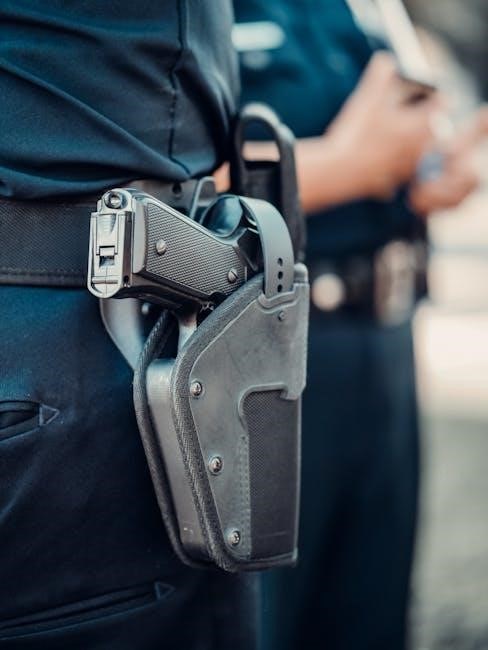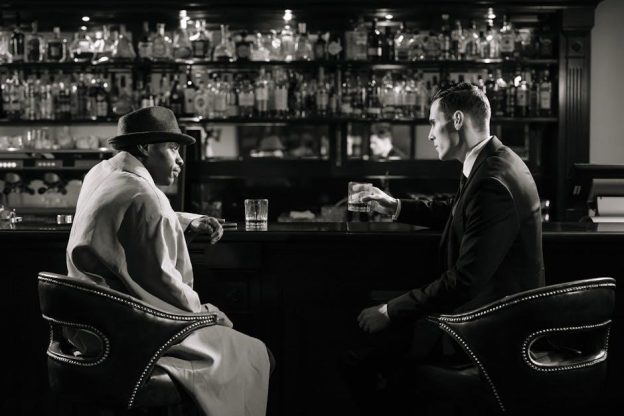The Junior Detective Badge is a unique award designed for young learners‚ focusing on developing essential investigative and critical thinking skills through fun‚ engaging activities.
Purpose of the Junior Detective Badge
The Junior Detective Badge aims to teach young participants essential investigative skills‚ encouraging curiosity and critical thinking. It helps them develop observation‚ problem-solving‚ and teamwork abilities while fostering a sense of responsibility. By engaging in detective-like activities‚ juniors learn to gather clues‚ analyze information‚ and draw logical conclusions. This badge also promotes STEM education and leadership‚ preparing them for real-world challenges. Its purpose is to empower young minds with confidence and skills that benefit them beyond the program‚ making it a valuable and enriching experience for personal growth.
Importance of Developing Detective Skills
Developing detective skills is crucial for fostering critical thinking‚ observation‚ and problem-solving abilities in young learners. These skills enhance analytical reasoning and creativity‚ benefiting academic and real-life situations. By mastering detective techniques‚ juniors improve their ability to gather and interpret information‚ making informed decisions. Such skills also promote teamwork and leadership‚ essential for collaborative efforts. Cultivating these abilities early on prepares juniors to tackle complex challenges confidently‚ both in their personal and future professional lives‚ making detective training a valuable foundation for lifelong learning and growth.

Eligibility Criteria for the Junior Detective Badge
Eligibility requires participants to meet specific age and membership criteria‚ ensuring they are prepared to engage in detective training and activities designed for their skill level.
Age and Membership Requirements
The Junior Detective Badge is typically designed for youth members within a specific age range‚ ensuring they are developmentally ready for the activities. Membership in recognized organizations is often mandatory to participate‚ as these programs are structured to align with the group’s educational goals. Proper registration and adherence to the organization’s guidelines are essential to maintain the integrity and value of the badge. These requirements help create a cohesive and focused learning environment for all participants.
Prerequisite Skills and Knowledge
Earning the Junior Detective Badge requires foundational skills in observation‚ problem-solving‚ and critical thinking. Participants should demonstrate an understanding of basic investigative techniques and teamwork principles. Familiarity with STEM concepts and logical reasoning is beneficial‚ as these skills are essential for analyzing clues and solving challenges. Prior experience in leadership roles or collaborative projects can also enhance a participant’s ability to contribute effectively during badge activities. These prerequisites ensure that all members are well-prepared to engage fully in the detective training program.
Required Skills for Junior Detectives
Junior detectives need strong observational abilities‚ keen problem-solving skills‚ and sharp critical thinking to analyze clues and solve mysteries effectively.
Proficiency in teamwork‚ leadership‚ and communication is also essential for collaborating on cases and presenting findings clearly.
The Power of Observation
The power of observation is a cornerstone skill for junior detectives‚ requiring attention to detail and the ability to notice subtle clues. Trainees learn to carefully examine environments‚ people‚ and objects‚ recording observations systematically. This skill helps in identifying patterns‚ inconsistencies‚ and hidden details that others might overlook. By practicing observation techniques‚ such as active listening and mindful watching‚ young detectives develop a keen eye for detail.
Mastering observation involves recognizing small but significant elements‚ like unusual behaviors or minute physical changes. These skills are essential for solving mysteries‚ conducting investigations‚ and piecing together seemingly unrelated facts. Regular practice enhances overall awareness‚ making junior detectives more adept at gathering critical information in various situations. This foundational skill prepares them for more complex detective work and real-world problem-solving.
Problem-Solving and Critical Thinking
Problem-solving and critical thinking are essential skills for junior detectives‚ enabling them to analyze clues‚ connect evidence‚ and deduce logical conclusions. Through interactive activities‚ young detectives learn to approach challenges methodically‚ evaluating information and identifying patterns. These skills are honed by solving mock crimes‚ riddles‚ and puzzles‚ which simulate real-life investigative scenarios. Critical thinking encourages creativity in exploring multiple solutions while maintaining a focus on factual accuracy. These abilities not only enhance detective work but also foster independent reasoning and decision-making in everyday life‚ preparing juniors for future challenges.:

Practical Steps to Earn the Badge
Earning the Junior Detective Badge involves mastering observation techniques‚ solving mock crimes‚ and participating in hands-on activities that simulate real-life investigative scenarios‚ fostering practical skill development.
Step 1: Practicing Observation Techniques
Practicing observation techniques is the foundation of detective work. Start by identifying details in images or scenes‚ describing people‚ and noting subtle changes in environments. Engage in exercises that test your ability to notice patterns‚ such as comparing handwriting samples or spotting hidden objects. These activities sharpen your awareness and attention to detail‚ essential for gathering clues. Additionally‚ practice decoding simple codes‚ like Morse Code‚ to enhance your investigative skills. Regular practice will help you develop a keen eye for detail‚ a critical skill for any aspiring junior detective.
Step 2: Solving Mock Crimes and Puzzles
Solving mock crimes and puzzles is an exciting way to apply observation skills. Engage in activities like decoding messages‚ identifying suspects‚ or uncovering hidden clues. Participate in role-playing scenarios where you investigate pretend crimes‚ analyzing evidence and connecting the dots. These exercises improve problem-solving abilities and deductive reasoning. Additionally‚ work on logic-based puzzles to enhance critical thinking. Teamwork is encouraged‚ as sharing insights can lead to faster solutions. Regular practice in these areas builds confidence and prepares you for real-world challenges‚ making you a skilled junior detective.

Leadership and Teamwork
Leadership and teamwork are vital skills for junior detectives‚ fostering collaboration and problem-solving. These abilities help in guiding groups‚ assigning tasks‚ and achieving collective goals effectively.
Working in Teams to Crack Cases
Working in teams is essential for junior detectives‚ as it mirrors real investigative scenarios where collaboration is key. By assigning roles and sharing insights‚ young detectives learn to pool their skills‚ enhancing problem-solving efficiency. Teamwork fosters camaraderie and teaches the value of diverse perspectives in cracking cases. Through group activities‚ juniors practice communication‚ delegation‚ and conflict resolution‚ all while building trust and mutual respect. This collective approach not only strengthens their detective abilities but also prepares them for future challenges in leadership and collaboration.
Developing Leadership Skills
Leadership skills are cultivated as junior detectives take charge of investigations or guide their peers in solving mysteries. By leading discussions‚ organizing clues‚ and making strategic decisions‚ they build confidence and responsibility. These experiences teach them to inspire others‚ delegate tasks effectively‚ and make informed choices under pressure. Developing leadership skills empowers young detectives to not only excel in their roles but also apply these abilities in broader life situations‚ fostering a strong foundation for future challenges and collaborative endeavors.
Additional Resources and Materials
Access recommended books‚ online courses‚ and activity guides to enhance detective skills. Utilize tools like code-breaking kits and investigation manuals to aid in earning the badge.
Recommended Reading and Tools
To excel in detective work‚ explore books on mystery-solving techniques and crime investigation. Utilize activity guides that include puzzles‚ codes‚ and case studies. Online tools like code-breaking software and forensic science kits can enhance your skills. Additionally‚ interactive games and apps designed for junior detectives can provide hands-on practice. STEM-related resources are also valuable for developing analytical thinking. Leadership and teamwork exercises found in youth activity manuals can further complement your training. These resources will help you master the skills needed to earn the Junior Detective Badge and foster lifelong problem-solving abilities.
Online Courses and Tutorials
Enroll in online courses that teach detective skills‚ such as mystery-solving‚ code-breaking‚ and forensic science. Interactive tutorials on platforms like Coursera or edX offer engaging lessons for juniors. Many courses include puzzles‚ crime scenarios‚ and STEM-based activities to sharpen analytical thinking. Some programs focus on leadership and teamwork‚ essential for collaborative investigations. These resources provide structured learning paths to master detective techniques and prepare for the badge requirements. Utilize these tools to enhance your problem-solving abilities and gain confidence in your investigative skills. Online tutorials are a great way to learn at your own pace and explore real-world detective methods.

Assessment and Evaluation
Evaluation for the Junior Detective Badge involves reviewing investigative skills‚ problem-solving abilities‚ and teamwork. Final projects and practical tests determine mastery of detective techniques and critical thinking.
Final Project Requirements
The final project requires participants to solve a mock crime or mystery‚ demonstrating their observational and problem-solving skills. They must present their findings in a clear‚ organized manner‚ showcasing their ability to gather clues‚ analyze evidence‚ and reach logical conclusions. Teamwork and critical thinking are essential components of the project. The presentation should include challenges faced‚ solutions applied‚ and lessons learned. Evaluators assess creativity‚ attention to detail‚ and the ability to communicate effectively. This project serves as the culmination of all skills learned‚ ensuring participants are well-prepared to apply their detective abilities in real-life situations.
Evaluation Criteria for the Badge
Evaluation for the Junior Detective Badge focuses on the participant’s ability to demonstrate effective detective skills‚ including observation‚ critical thinking‚ and problem-solving. Assessors review how well participants gather and analyze clues‚ form logical conclusions‚ and present their findings clearly. Teamwork‚ creativity‚ and attention to detail are also considered. The final project and practical exercises are key components of the evaluation process‚ ensuring participants meet the badge’s requirements. Evaluators look for a clear understanding of investigative techniques and the ability to apply them effectively in various scenarios‚ reflecting the skills taught throughout the program.
Earning the Junior Detective Badge empowers youth with essential life skills like critical thinking‚ teamwork‚ and leadership‚ preparing them for future challenges and fostering a sense of accomplishment.
Benefits of Earning the Junior Detective Badge
Earning the Junior Detective Badge offers numerous benefits‚ including enhanced observation and critical thinking skills‚ improved problem-solving abilities‚ and boosted confidence. Participants develop teamwork and leadership qualities while engaging in exciting‚ real-world challenges. This badge fosters curiosity and creativity‚ encouraging young minds to explore STEM concepts and investigative techniques. It also promotes a sense of achievement and prepares individuals for future challenges by building a strong foundation in analytical thinking and collaboration. The skills gained are transferable to various aspects of life‚ making it a valuable and enriching experience for all participants.
Next Steps After Completing the Badge
Upon earning the Junior Detective Badge‚ participants are encouraged to continue refining their skills through advanced activities and real-world applications. They can explore specialized detective training‚ such as forensic science or cybersecurity‚ to deepen their expertise. Collaborating with peers on complex cases or leading workshops can further enhance leadership abilities. Additionally‚ sharing achievements with the community or mentoring younger learners fosters a sense of responsibility and pride. This badge serves as a stepping stone‚ inspiring further exploration of investigative fields and lifelong learning in critical thinking and problem-solving.
